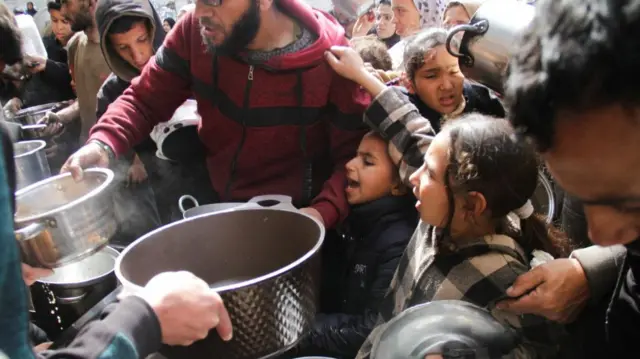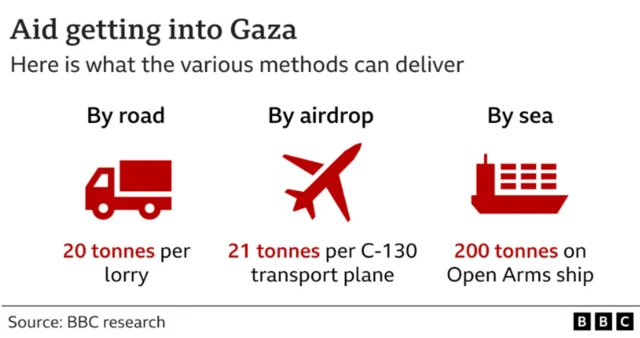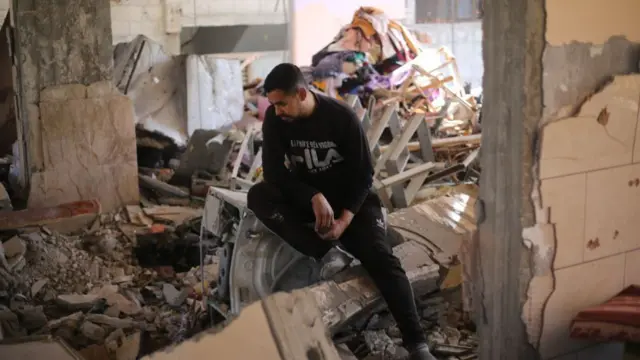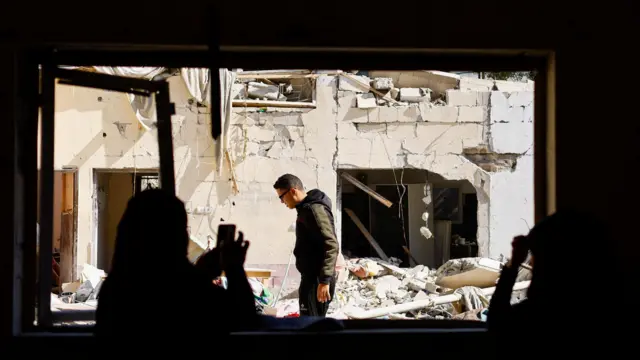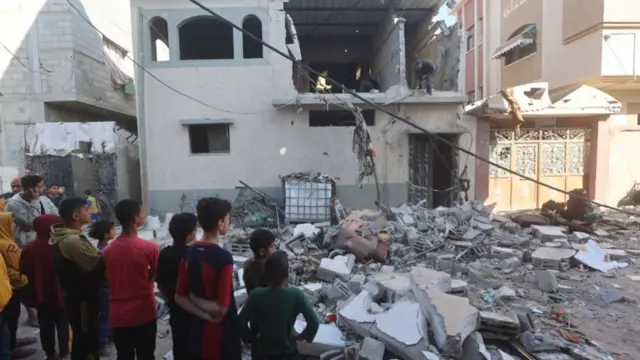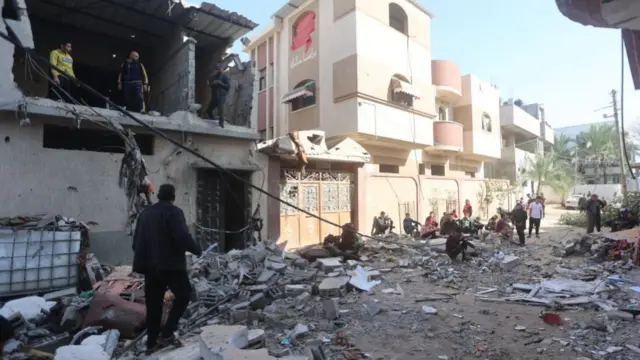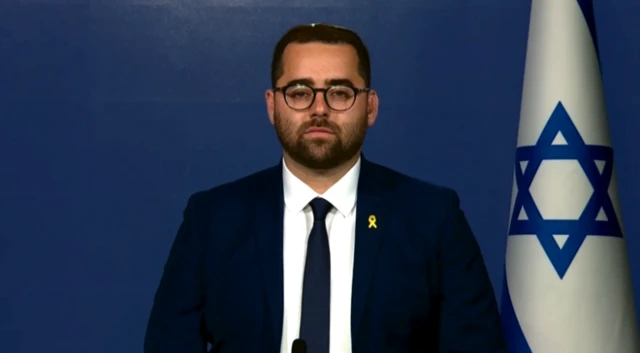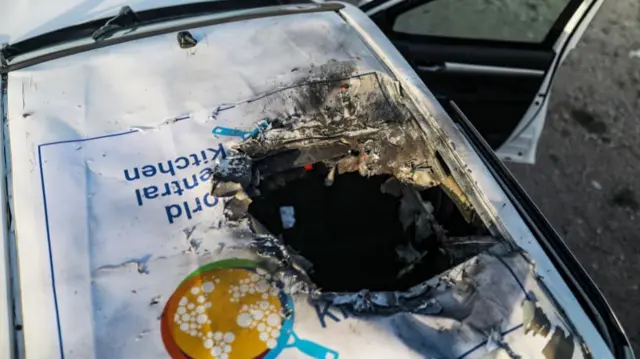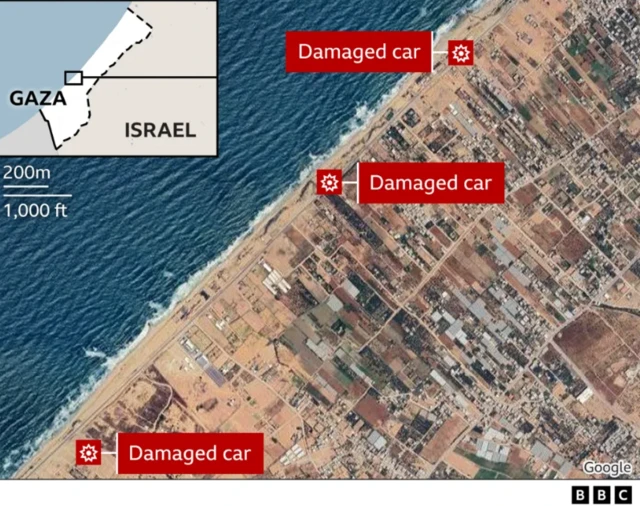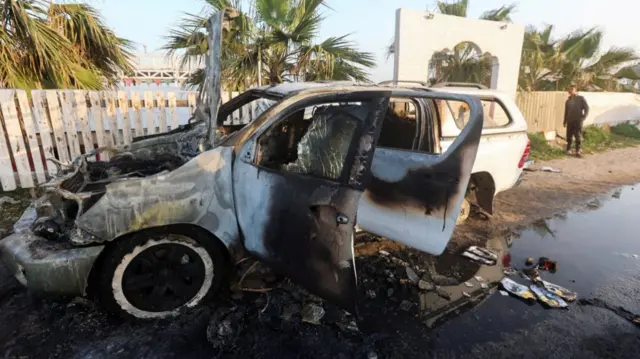Iran warns Israel it will pay heavy price for consulate blastpublished at 16:28 BST 4 April 2024
 Image source, Reuters
Image source, ReutersIn Iran, President Ebrahim Raisi says Israel "will pay a heavy price" for its "criminal actions", referring to a suspected Israeli strike on an Iranian consulate building in Syria.
He made his remarks in a phone call with Iraqi Prime Minister Mohammed Shia al-Sudani, Tehran says.
The strike on the Iranian consulate in Damascus, on Monday, killed seven members of Iran's Islamic Revolution Guards Corps (IRGC), including Brig Gen Mohammad Reza Zahedi, a senior commander of the IRGC's extraterritorial Quds Force in Syria and Lebanon.
Raisi also praised the "common positions" of Iran and Iraq against Israel over the Gaza war.
According to the Iranian readout, Sudani described the Damascus attack as a result of Israel's "failures" in the face of the "resistance movement" in the region.



